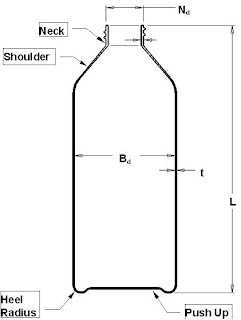Control Chart Interpretation – Three Basic Rules – C, P, R
C - If any data points are outside the control limits, treat them as a special cause.
Caution: with 3 sigma limits, 3 out of 1000 times will not be a special cause,
but 997 times out of 1000 it will be!
P - Since the data should be normally distributed about the mean, look for any non-normal patterns.
The easiest way to do this, is to divide the distance between the UCL and the mean or the LCL and the mean into 3 equal parts or zones.
- If about 68% of the data points fall within the first zone above and below the average, then there are no special causes.
- If there are more than 68% (say 90%) or less than 68% (say 45%) then there are special causes acting on the process.
R - If there is a consecutive run of 7 points in a row above or below the mean,
treat the 7 or more points as a special cause, i.e., the process has "shifted".
Think of it as flipping a coin and getting 7 heads in a row.
A very unlikely event!! (Actually, only 8 chances out of 1000!)
Caution: with 3 sigma limits, 3 out of 1000 times will not be a special cause,
but 997 times out of 1000 it will be!
P - Since the data should be normally distributed about the mean, look for any non-normal patterns.
The easiest way to do this, is to divide the distance between the UCL and the mean or the LCL and the mean into 3 equal parts or zones.
- If about 68% of the data points fall within the first zone above and below the average, then there are no special causes.
- If there are more than 68% (say 90%) or less than 68% (say 45%) then there are special causes acting on the process.
R - If there is a consecutive run of 7 points in a row above or below the mean,
treat the 7 or more points as a special cause, i.e., the process has "shifted".
Think of it as flipping a coin and getting 7 heads in a row.
A very unlikely event!! (Actually, only 8 chances out of 1000!)



Comments